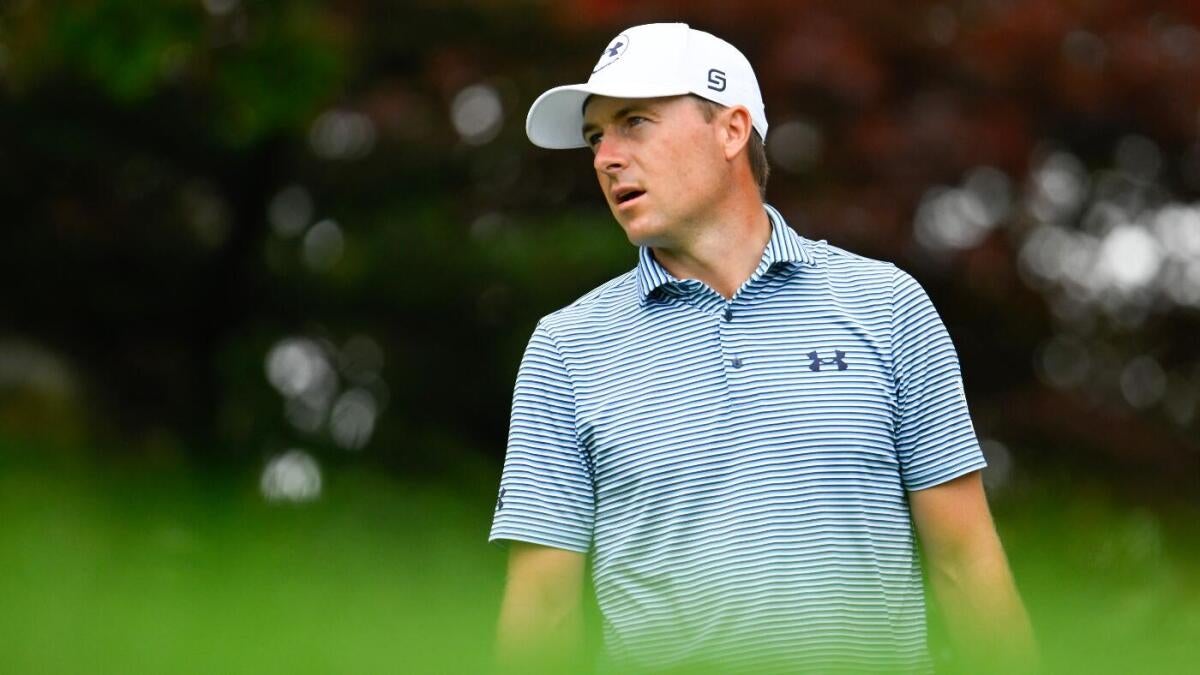The Fragility of Consistency: Jordan Spieth’s Withdrawal and the Rising Injury Trend in Professional Golf
A Shocking Departure
In the tightly knit world of professional golf, where consistency and endurance are paramount, Jordan Spieth’s abrupt withdrawal from the 2024 Travelers Championship sent shockwaves through the community. Known for his tenacity and unwavering determination, Spieth’s decision to step back mid-tournament was unprecedented. With 297 PGA Tour starts under his belt, this was his first withdrawal, signaling not just a personal setback, but a broader issue within the sport.
Spieth’s neck injury, sustained during warm-up, quickly escalated, making it impossible for him to continue. His struggle through the first 12 holes, visibly in pain, culminated in a 5-over score and a grimacing exit. This wasn’t a tactical retreat; it was a stark admission of physical limitations. The timing, at the final Signature Event of the season, amplified the impact, disrupting his competitive schedule and potential earnings.
The Widening Epidemic
Spieth’s experience is far from unique. A growing number of golfers are grappling with injuries, disrupting their careers and the sport’s competitive dynamics.
Nelly Korda, a dominant force on the LPGA Tour, has battled neck spasms, leading to withdrawals. Sahith Theegala, a rising star, was sidelined with a similar issue, opening spots in fields for other players. Even seasoned veterans like Justin Rose have succumbed to physical setbacks, withdrawing from the Arnold Palmer Invitational with a back injury. Jason Day’s unexplained withdrawal from the Truist Championship further highlights the prevalence of undisclosed health issues.
This surge in injuries points to the evolving physical demands of modern golf. Increased swing speeds, intensified training regimens, and relentless travel schedules all contribute to the strain on players’ bodies. The pressure to maintain peak performance week after week, coupled with the repetitive motions of the golf swing, creates an environment ripe for overuse injuries.
Ripple Effects on Competition
The consequences of these injuries extend beyond individual players. Withdrawals disrupt tournament fields, altering the competitive landscape and impacting betting odds and fan expectations. The absence of key players diminishes the overall quality of competition, robbing fans of thrilling matchups.
Spieth’s withdrawal is a case in point. He was enjoying a strong season, with four top-10 finishes, and his presence at the Travelers Championship was highly anticipated. His absence not only affected his own performance but also removed a significant contender from the field. This incident underscores the unpredictable nature of the game, where factors like a player’s physical and mental state can significantly influence outcomes.
The Mental Battle
While the focus is often on the physical aspects of injury, the mental toll is equally significant. For a player like Spieth, accustomed to playing through discomfort, being forced to withdraw represents a considerable psychological setback. The pressure to perform, the fear of falling behind in the FedExCup standings, and the constant media scrutiny all contribute to the mental strain on professional golfers.
An injury not only disrupts their physical routine but also triggers anxiety and self-doubt, potentially impacting their performance even after they return to the course. The fact that this was Spieth’s first withdrawal in 297 starts suggests a deep-seated aversion to conceding, making this decision particularly difficult.
The Path Forward
The recent spate of injuries serves as a wake-up call for the PGA Tour and its players. A more proactive approach to injury prevention is crucial. This includes prioritizing physical conditioning, incorporating more rest and recovery into training schedules, and providing access to comprehensive medical support.
A greater emphasis on biomechanics and swing analysis could help identify and address potential risk factors before they lead to injury. The tour could also explore ways to reduce the intensity of the schedule, perhaps by limiting the number of events or extending the off-season.
A Turning Point
Jordan Spieth’s withdrawal from the Travelers Championship was more than just a personal setback; it was a symptom of a larger issue plaguing professional golf. It highlighted the increasing vulnerability of players to injury, the disruptive impact on competition, and the need for a more proactive approach to player health and well-being.
As the sport continues to evolve, prioritizing the physical and mental resilience of its athletes will be paramount. The incident serves as a stark reminder that even the most enduring champions are not immune to the physical demands of the game. A shift in mindset—one that prioritizes longevity and well-being alongside performance—is urgently needed to ensure the long-term sustainability and captivating appeal of professional golf. The future of the sport depends on it.

